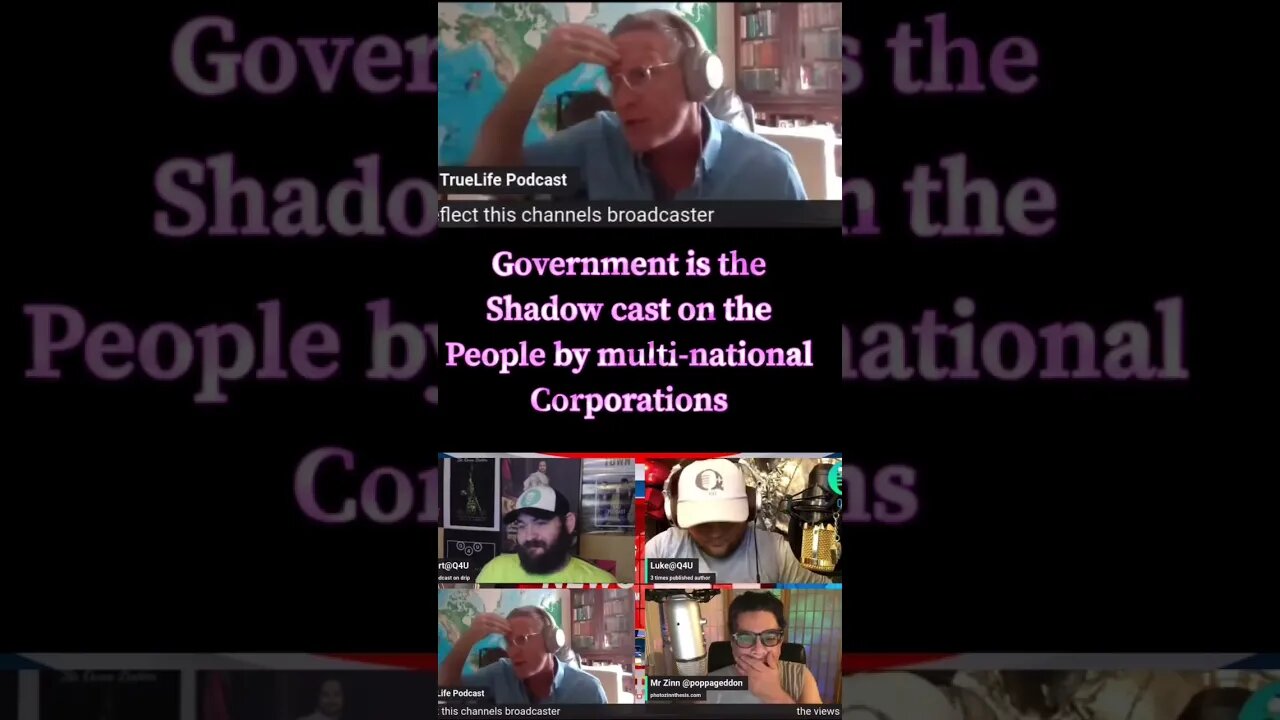Premium Only Content

The Corporate Takeover
https://www.youtube.com/live/mSQtA0unNq8?feature=share
Here’s a short piece on the collusion between banks, corporations, and governments that undermines the middle class:
The collusion between banks, corporations, and governments has become a growing concern as it poses a significant threat to the well-being of the middle class. When these powerful entities work together, often driven by shared interests, the effects on the middle class can be detrimental.
One of the ways collusion undermines the middle class is through policies that prioritize the interests of banks and corporations over those of everyday citizens. Lobbying and campaign contributions by powerful corporations and financial institutions can influence government decisions, leading to regulations and legislation that favor these entities at the expense of the middle class. This collusion can result in deregulation, tax breaks, and subsidies that primarily benefit the wealthy elite, exacerbating income inequality and stifling the economic prospects of the middle class.
Moreover, the revolving door phenomenon, where individuals move between high-ranking positions in government and influential roles in corporations or financial institutions, further perpetuates collusion. This can lead to favorable treatment for these entities, granting them undue influence over policies and regulations that shape the economy. Such collusive relationships often sideline the needs and concerns of the middle class, reinforcing a system that favors the already privileged.
Another consequence of collusion is the erosion of market competition. Large corporations, in collusion with banks and government entities, can stifle competition by erecting barriers to entry for smaller businesses. This consolidation of power allows them to exert control over markets, limiting consumer choice and pricing power. As a result, the middle class can find themselves paying higher prices for essential goods and services, while smaller businesses struggle to thrive, reducing job opportunities and stifling entrepreneurship.
To safeguard the interests of the middle class, it is crucial to promote transparency, accountability, and stricter regulations that prevent collusion and ensure a level playing field. Encouraging policies that prioritize the well-being and economic stability of the middle class, such as fair taxation, access to affordable education and healthcare, and robust consumer protection measures, can help counter the detrimental effects of collusion.
Addressing the collusion between banks, corporations, and governments requires an engaged and informed citizenry, as well as strong democratic institutions that promote checks and balances. By actively combating collusion and prioritizing the needs of the middle class, we can work towards creating a more equitable and inclusive society, where prosperity is shared by all.
-
![🔴[LIVE TRADING] Bounce or Bust?! || The MK Show](https://1a-1791.com/video/fwe2/ad/s8/1/c/n/q/f/cnqfy.0kob-small-The-MK-Show-Feb.-24th.jpg) DVR
DVR
Matt Kohrs
14 hours ago🔴[LIVE TRADING] Bounce or Bust?! || The MK Show
34.4K2 -
 1:03:25
1:03:25
Kyle Fortch
3 hours ago $0.68 earnedRick Barker: Managing & Developing Taylor Swift, Breaking Artists Today & MORE | THE ONE SHEET S1E5
2 -
 37:11
37:11
BonginoReport
5 hours agoDan Bongino is Leaving (Ep.146) - 02/24/2025
192K378 -

Wendy Bell Radio
6 hours agoThe MAGA Diet
124K48 -
 1:22:03
1:22:03
Graham Allen
4 hours agoGRAHAM MAKES YUGE ANNOUNCEMENT!! + LIBERAL REP ROOTING AGAINST AMERICA?!
76.1K65 -
 1:01:28
1:01:28
Randi Hipper
2 hours agoETHEREUM PRICE BOUNCES AFTER BILLION DOLLAR HACK!
21.5K1 -
![Massive Paradigm Shift: Bongino Hired At FBI; Joy Reid Fired At MSBNC [EP 4450-8AM]](https://1a-1791.com/video/fwe1/52/s8/1/u/2/_/e/u2_ey.0kob-small-Massive-Paradigm-Shift-Bong.jpg)
The Pete Santilli Show
17 hours agoMassive Paradigm Shift: Bongino Hired At FBI; Joy Reid Fired At MSBNC [EP 4450-8AM]
58.4K18 -
 1:27:17
1:27:17
Game On!
16 hours ago $2.71 earnedAnother Monday without football...
68.5K8 -
 1:43:56
1:43:56
Jeff Ahern
3 hours ago $4.49 earnedMonday Madness with Jeff Ahern (Ding Dong the Witch is Gone!)
58.5K3 -
 34:56
34:56
Athlete & Artist Show
1 day ago $1.78 earnedCANADA WINS GOLD AGAIN!!
43.3K2